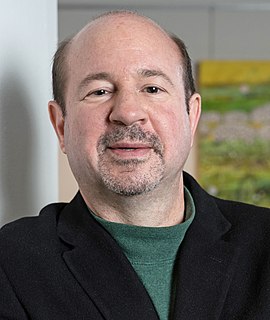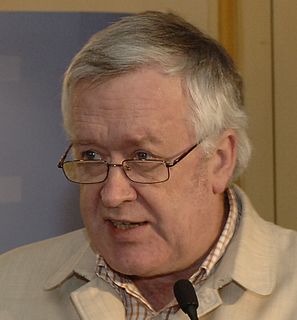A Quote by Ban Ki-moon
Climate change, in some regions, has aggravated conflict over scarce land, and could well trigger large-scale migration in the decades ahead. And rising sea levels put at risk the very survival of all small island states. These and other implications for peace and security have implications for the United Nations itself.
Quote Topics
Related Quotes
What are the policy implications of the government and this fantasy Islam, what are the policy implications of a United States government that believes Islam is as anti-terror as you and I are? Well, it means that Islamic doctrine can never be cited as the cause of terrorism, as a matter of policy. And it never is. It never is.
It is in fact necessary to reduce CO2 emissions. There is no reason why we shouldn't spend our vacations on (the North Sea island of) Sylt instead of in the Seychelles, or drive more economical cars - for the sake of preserving increasingly scarce resources if nothing else. But that won't enable us to stop climate change. As long as China, India and the United States continue the way they have been, what we Germans do is more or less irrelevant.
The United States has every intention of continuing to do the kind of reconnaissance and surveillance work we have done for decades, well known to everyone, that is essential to protect our national security, and frankly, the security of our friends in various regions of the world. It is part of our collection system.
The United States ... has been proud of its association with the State of Israel. We shall continue to stand with Israel. We are committed to Israel's survival and security. The United States for a quarter of a century has had an excellent relationship with the State of Israel. We have cooperated in many, many fields - in your security, in the well-being of the Middle East, and in leading what we all hope is a lasting peace throughout the world.
The United Nations' founders understood that decisions affecting war and peace should happen only by consensus, and with America's consent, the veto by Security Council permanent members was enshrined in the United Nations Charter. The profound wisdom of this has underpinned the stability of international relations for decades.









































